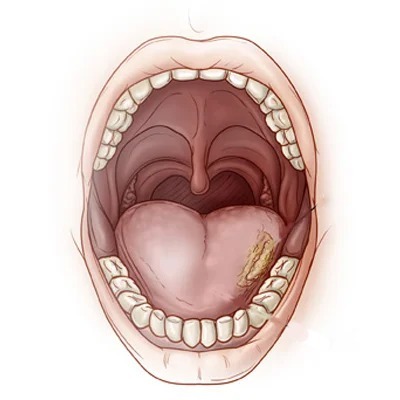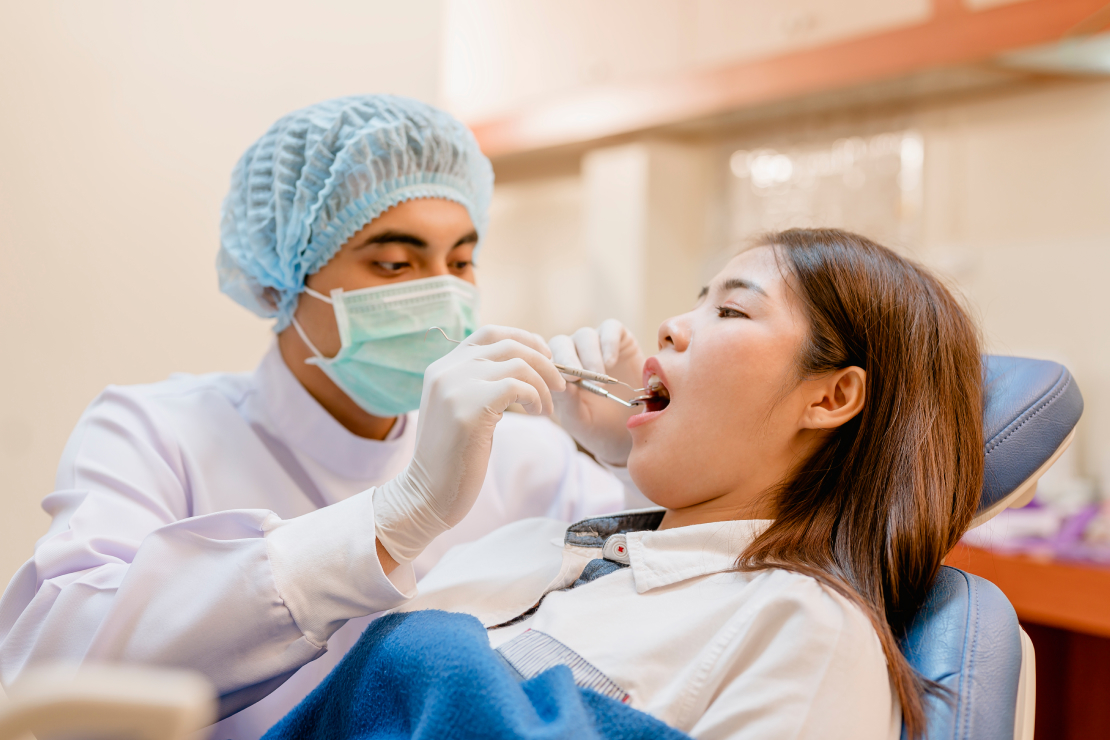
Mouth Cancer Treatment
It begins from the lip, lining of the teeth, gums, tongue, cheeks, roof of mouth and floor of mouth and area behind the wisdom tooth Mouth cancer (also known as mouth cancer or oral cavity cancer) is usually found in the tongue, cheeks and jaw bone. Not all tumors or growths or ulcer in the mouth are cancer. Some are benign (not cancer), while others are precancerous, that is they tend to become cancer on later date but are not currently cancer.
Symptoms Of Oral Cancer Include
Leukoplakia (literally a “white patch”) is a persistent white area or spot in the mouth. About 25% of leukoplakias are cancerous or precancerous.
Erythroplakia (red patch) is a persistent red, raised area or spot in the oral cavity that bleeds if scraped. About 90% of erythroplakias are cancerous or precancerous.
Other potential signs of oral cancer include:
- ulcer in the mouth that does not heal easily
- Unexpected loose teeth.
- Unexplained bleeding anywhere in the mouth
- A lump in the neck.
- A mass or thickening in the face, jaw, cheek, tongue or gums.
- Difficulty chewing, swallowing or moving the tongue or jaw.
- Persistent bad breath.
- Unexplained weight loss.
Diagnosis
Biospy : a small sample of tissue will be taken to confirm the diagnosis of cancerous or precancerous lesion.

Risk Factors
- Tobacco – masala, guthka, chewing tobacco, paan, beedi or cigarettes – all are causative factors.
- Alcohol – Individuals who smoke and drink regularly have higher risk of developing mouth cancer.
- Irritants – oral habits such a paan masala without tobacco, lime paste can lead to oral cancer
- Trauma – constant trauma such as that from a sharp tooth can cause oral cancer
- Sun Exposure – leads to lower lip cancers
Treatment
Treatment of oral cancers depends on the stage at which the patient presents to us. Early stage mouth cancers should be managed with surgery alone. And advanced cases will require combined modality treatment of surgery followed by radiotherapy and/or chemotherapy.
Why to choose us to get treated for oral cancers?
Where you go first for cancer treatment matters. Early stages of cancer gives best oncological outcomes and functional outcomes. Advanced stages of cancer will require combination of treatment. With extensive experience in high volume centre like in Tata memorial, we have the expertise in treating these cancer with best functional outcomes and early functional recovery. Treatments may include advanced surgical and reconstructive surgery techniques which not only focuses repair but also provide best functional preservation. Mouth cancer care also include specialists who can help improve your quality of life during and after treatment. Our combined team work with speech language pathologist will help the patients to maximise the ability to speak, chew and swallow without much difficulty.